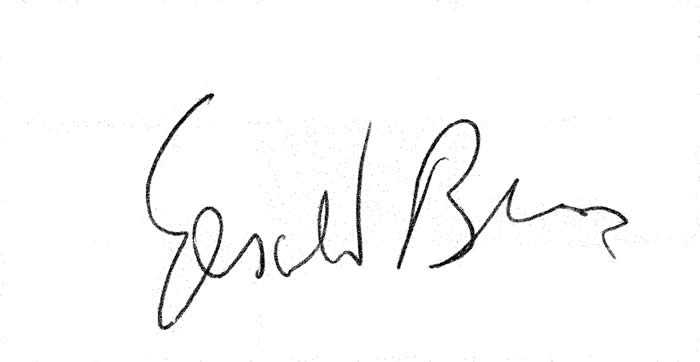
Time is unreal because always measured against something other than itself; Keats
could regret its annexation more than the analysis of rainbows, Iris laughing
with Fortuna to Humphrey Davy's gas, Mallarmé's Faun in a country
that sounds like Sussex. Sir Flinders Petrie marries Alice-for-short.
They have no children. Tennyson grew up in a terrain wildly different as Michigan's,
hadn't a useful thought in his head about time except what streams told him.
Time we know (talking to Gary Aker about his novel) refracts; a character
meets another, is thrown back to old attitudes but doesn't want to be. They are
inappropriate given experiences unshared. Living like time, shared, is it, proposed time.
"Some squeaking Cleopatra boy my greatness" -- Julian Markels says, "the performance on the stage
and the reality it claims to imitate create a unified experience that occurs outside of time,"
the footprints of a painted hound impinging on legend, a moonbow taken as Cynthia's circlet
if you wish, Queen of the Air's gown trimmed with virgins and scorpions in black seaweed.
So many meanings of the word "mole," one of them just being invented in Johnson's time,
suggest Romantics got sidetracked in the picturesque, a sense of stoppages only
when the thinking stops, Prometheus's liver periodic source of glucose, Mary Shelley
alive to that which recurs, told themselves fables about how they were alive,
chatty as "The Vampire of Kring" in 1856, when she'd've been sixty-two, long widowed.
Their fiction was framed, took place in Gandersheim, somewhere foreign. I paste these
notes to myself (as she may have done), facts that ring because of their sounds, hearts saved
from the pyre, buried in Rome for the symbolic value, lives not to be compassed by thought.
I took from my pocket an imaginary object and placed it on her open palm,
pressing down with my right fingers so she could feel the weight of it.
"This is an invisible jar," I said, "its glass slightly greenish, with a flat metal cap
screwed down tight. Inside it is a greenish-yellow liquid and a thing I ask you
to look at." Focusing on the space above her palm, she spared me a quick glance.
"Describe it," I said. "It is a little man," she said, "perfectly formed and quite beautiful.
He is lying on his stomach. His elbows are stretched out and his face is resting on
his hands, one flat over the other. He seems to be asleep. His legs are bent
back, there isn't enough room for him to lie full-length in the jar," she said,
rotating the jar slightly, "and his feet are just touching the jar, there -- you
can see his toes are pale against the glass. He has a lovely tan." "Is that all?"
"He's blond. His hair is spread out toward his left. It waves a little when I move the jar.
Ah, he's moved, he crossed his ankles." She positioned the jar between right fingers and thumb
(bent a little back), skewed her head sideways to look up at it, and with a little nod handed it
back to me, saying nothing. I gave it a look as if to check she'd got it right, and tilting the cool,
still invisible jar in my hand to catch the bit of flesh against the glass like a nail paring, smiled and
restored the jar with great care to my raincoat pocket, so as not to wake the tiny sleeping man.
The awkwardness of fiction is its maintenance -- "a real wind from nowhere lifted her frock, and
up to her waist she was brown as an acorn," leading into loveliness. It used to be said that if
you saw a ghost it's best to return to a dark house, or peer in to catch the light of fire or candle
before it sees you first. You could surprise the light, or else be ill for days, even die. Narrative
crawls up your belly till you're stupefied, unlaced as Keats's Autumn asleep in liquid.
I get a call this morning from Walden Kirsch asking am I the Gerald Burns who went to Harvard
in 1962. I say sure, and he says they’ve arrested Ted Kaczynski. We meet at the bookshop and he puts
some things on tape, including the entry in the Thirtieth Anniversary class report, beautifully photographed.
Nine months ago I got a call that told me Ted was probably the bomber. Today’s paper says the FBI
put him “under scrutiny about two months ago.” It weighed on me so I put a reference to letter-bombings
in The Nature of Investigation, p. 28 (written late June of last year). My poem functions as an
aide-memoire, sometimes. He could be innocent but from what I heard back then it isn’t likely.
The caller asked what (he to choose a gender) should do. I said, given the evidence, go to the FBI,
anonymously or not. Told him where their office was, how to act. Nuts, Ted. Our class was the first
to stretch demographics beyond prep schools. I came two weeks early, cleaned bathrooms, learned the tunnel
system connecting all the buildings underground. The suicide rate for my year was way up. Another
from my class is Governor of Oregon -- the TV says his secretary claims he didn’t know him.
I’d told Kirsch he wouldn’t. Formerly head of the NEA, his job to defend it. Rebecca’s neighbor in California
Copyright Gerald Burns 1995-1997